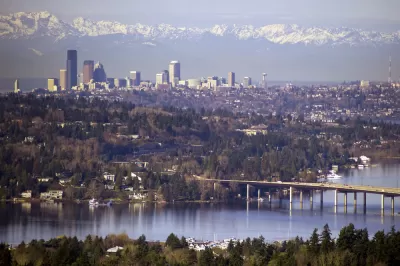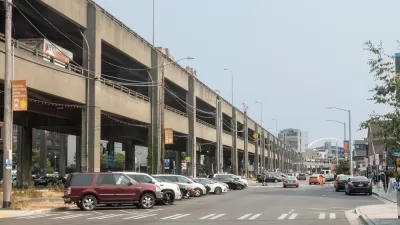In a recent column for Crosscut, Knute Berger looks back on the 20-year history of the city's urban village strategy to inform its emerging reality as an "urban bedroom community."

Knute Berger describes the urban villages plan: "Mayor Norm Rice introduced the urban villages strategy some 20 years ago, designed to designate centers of urban growth around the city. It was the planning response to the new Growth Management Act, and targeted areas throughout the city by increasing densities and anticipating where growth could be best absorbed."
"With change once again intensifying and with now two decades of village experience — plus the impending update of the city’s Comp Plan for growth through 2035 — we have an important chance to see whether the villages have worked as intended. How did we do on growth targets, livability and, most importantly, sustainability? How’s the health of the city? What do the results suggest for the future?"
The city took an institutional approach to answering these questions, hiring Peter Steinbrueck to produce the recently released Seattle Sustainable Neighborhoods Assessment Project [pdf], sponsored by the Department of Planning and Development.
Berger goes on to detail the good news and the bad news of the report, which you can read in the full article.
FULL STORY: Eye-opening study: Seattle is becoming an urban bedroom community

Planetizen Federal Action Tracker
A weekly monitor of how Trump’s orders and actions are impacting planners and planning in America.

Restaurant Patios Were a Pandemic Win — Why Were They so Hard to Keep?
Social distancing requirements and changes in travel patterns prompted cities to pilot new uses for street and sidewalk space. Then it got complicated.

Map: Where Senate Republicans Want to Sell Your Public Lands
For public land advocates, the Senate Republicans’ proposal to sell millions of acres of public land in the West is “the biggest fight of their careers.”

Maui's Vacation Rental Debate Turns Ugly
Verbal attacks, misinformation campaigns and fistfights plague a high-stakes debate to convert thousands of vacation rentals into long-term housing.

San Francisco Suspends Traffic Calming Amidst Record Deaths
Citing “a challenging fiscal landscape,” the city will cease the program on the heels of 42 traffic deaths, including 24 pedestrians.

California Homeless Arrests, Citations Spike After Ruling
An investigation reveals that anti-homeless actions increased up to 500% after Grants Pass v. Johnson — even in cities claiming no policy change.
Urban Design for Planners 1: Software Tools
This six-course series explores essential urban design concepts using open source software and equips planners with the tools they need to participate fully in the urban design process.
Planning for Universal Design
Learn the tools for implementing Universal Design in planning regulations.
Heyer Gruel & Associates PA
JM Goldson LLC
Custer County Colorado
City of Camden Redevelopment Agency
City of Astoria
Transportation Research & Education Center (TREC) at Portland State University
Camden Redevelopment Agency
City of Claremont
Municipality of Princeton (NJ)





























